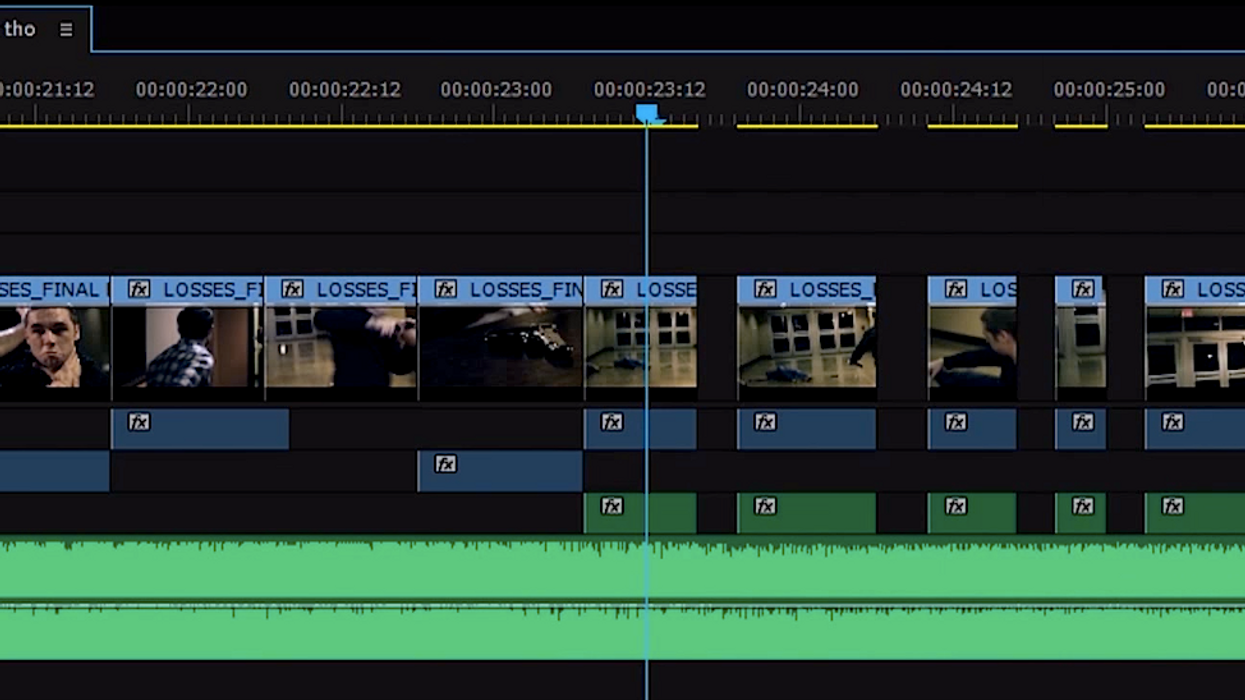Tips on How to Cut a Badass Trailer for Your Upcoming Film
Nothing makes or breaks an audience's expectation for a film like a trailer.

On one hand, a well-cut and expertly crafted trailer can stoke an audience's imagination, giving subtle, yet alluring hints of the film's plot, style, and overall tone. If the trailer audience likes what they see, they're a hell of a lot more likely to follow through and watch the film. On the other hand, if the trailer disappoints in some way, if it's awkwardly cut, includes too much or too little plot, if it confuses audiences or leaves them feeling underwhelmed, well, then you've done the marketing equivalent of shooting yourself in the foot.
Luckily, just about anything can be learned on the internet these days, including the art of cutting a trailer for your upcoming film. So without any further ado, here's Ryan Connolly and the Film Riot crew to offer some helpful tips on crafting a trailer:
Now, we might not all be cutting super high-octane action trailers like Losses, so the process that he's using here isn't necessarily applicable to, say, a romantic comedy, drama, or documentary. In cases like those, the trailer needs to rely more on making the audience aware of and invested in the emotional stakes in the finished film, and it needs to do that in a relatively short period of time. Although there's certainly no exact formula for making that happen, trailers are usually structured in a way similar to the finished film, just in a highly condensed form.
First, you've got to introduce the main characters. You've got to do more than just introduce them, however; you've got to get the audience invested in them, preferably with a touching, charming, or funny moment, a moment that humanizes and builds an inherent sense of empathy into the audience's expectations. Then comes the turning point, or the inciting incident as it's referred to in scriptwriting. This is the moment that launches your character into action, that starts them on their journey. If you can convey the inciting incident in a way that is brief, yet dramatic (or hilarious if you're cutting a trailer for a comedy), then you will capture your audience's attention. The rest of your trailer should be spent making the audience aware of just how much is at stake in your film. What does your main character gain if he or she is successful in their journey? What will they lose if they're unsuccessful? The higher the stakes, the more involved the audience will be.
Of course, the above formula, if you want to call it that, is pretty generic and doesn't apply to every film genre. However, with traditionally-structured narrative films, it's an excellent place to start with your trailer cutting journey. As with any other aspect of filmmaking, your best bet for learning the craft is to watch a shit-ton of trailers and to take note of what's working, what's not working, and why. Then you've got to practice, practice, practice. If you've got old footage sitting on a hard drive somewhere, cut a few trailers in a few different styles.
What are some of your tips for cutting an effective trailer?
Source: Film Riot











